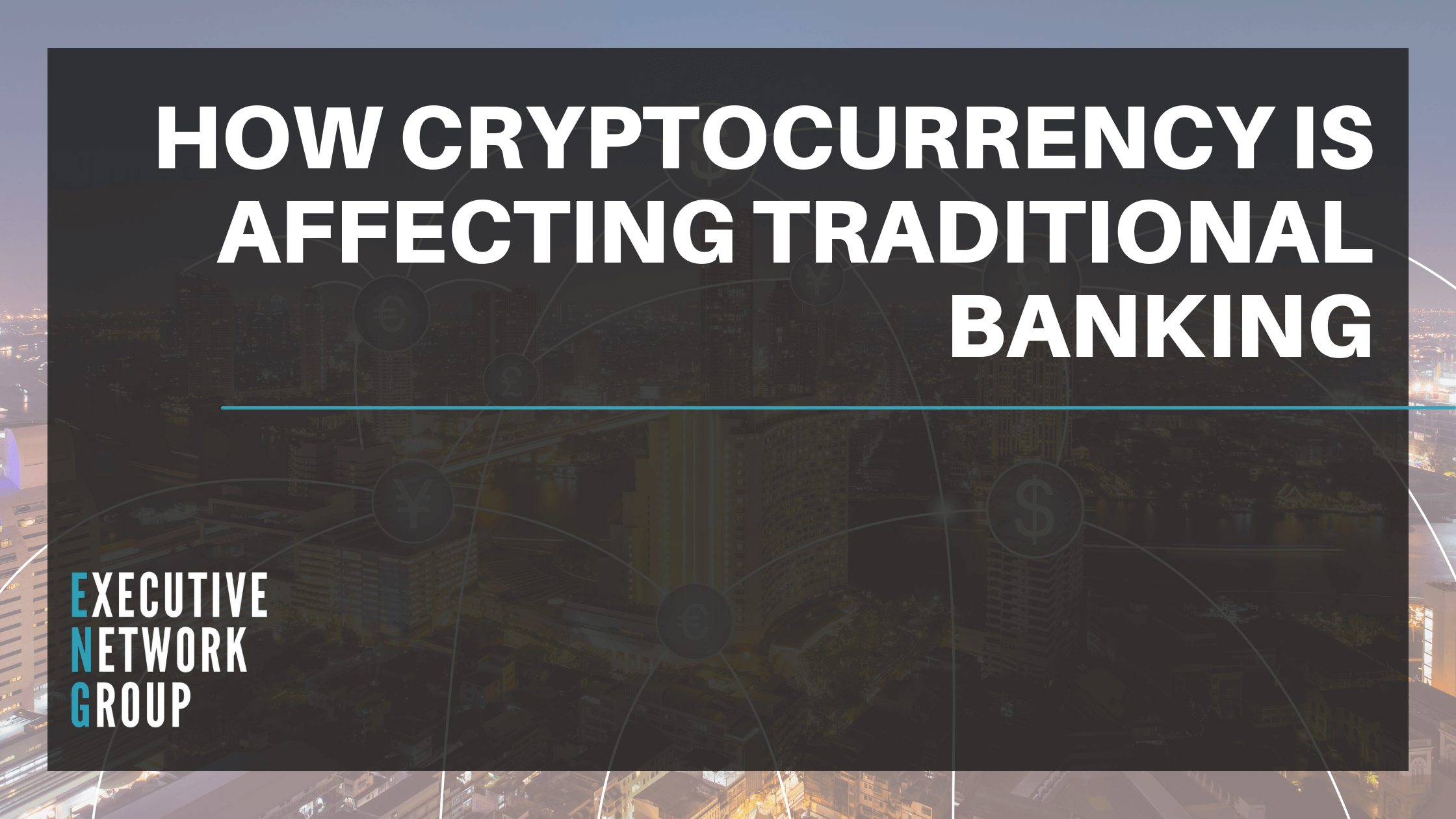How Is Cryptocurrency Affecting Traditional Banking?

Technology is evolving at an extraordinary rate and the financial services sector is no exception. From online banking services to virtual currency, the possibilities are seemingly endless. Finance has changed exponentially over the years, with so many new methods of making payments, where does cryptocurrency fit in?
The word ‘cryptocurrency’ is often heard with a sense of confusion, many don’t understand the complexity behind the technology and without a tangible product such as cash, it can often be overlooked as a legitimate form of currency. Essentially, cryptocurrency is a digital or virtual form of currency that is secured by cryptography, which is a method of protecting information by using code – which can only be read by the trained eye. To the average user, it’s a form of currency that is only accessed online, and the only way to understand it is to compare it to its cash equivalent.
Bitcoin, a form of cryptocurrency, is arguably the most well-known form of digital currency and its popularity has skyrocketed in the last twelve months. Initially created by Satoshi Nakamoto, it was created as a medium for daily transactions to avoid traditional banking after the 2008 financial collapse. The value of Bitcoin is dependent on investor enthusiasm, in November 2011 it was worth $2, now, in 2021, its value is in excess of $30,000. So how is it affecting traditional banking?
Generally speaking, banks have become less important over the years as technology evolves regardless of virtual currency. Recent times have seen demand for physical bank branches decline as online banking is a more convenient method for tasks such as depositing cheques and making transfers, 76% of people are using internet banking UK-wide and 49% stated they prefer PayPal as an online payment method in 2019.
Bank branches gradually faced a decrease in foot traffic, with the average branch receiving 26% fewer visits than in 2012, with less demand for physical branches, they may become an unnecessary cost for banks paying overheads and staff members. Online currencies and their providers don’t need physical branches and never have done, so the extra costs of running a bank or building society aren’t even considered. For many banks, shifting to (almost) online-only is likely to be a smart financial decision, although this massively takes away the customer service element of banking.
For many people, particularly those who regularly visit banks to physically make transactions, the idea of digital currency is so far removed that it won’t even be considered as an alternative. Because of the complexity of the technology, many people choose to stick to what they know in terms of keeping their money secure – investing in digital currency can go either way. The value can increase or decrease by thousands within a matter of hours, increasing the risk of losing money significantly.
Because of the volatility of the blockchain market, the financial security is much lower in comparison to traditional currency – crypto value can change massively overnight which is highly unlikely with cash. Although cryptocurrency can have a negative effect on banks, it can be embraced as part of modern banking methods as some banks accept cryptocurrency as a legitimate form of currency. China and Vietnam have banned cryptocurrency and are not accepting them as a lawful means of payment. Because of the more complicated nature of cryptocurrency in comparison to traditional banking, it’s more difficult to control, but with the right understanding of the technology, many banks worldwide are working together to create their own cryptocurrency and this may lead to digital currency being regulated – thus eliminating criminal activity.
To surmise, there are pros and cons, as with everything, with blockchain technology but to successfully use it as a currency, extensive research is recommended and those using it should be aware that there is little to no financial security when investing or using digital currencies.
To keep up to date with our content, please contact lauren.webster@executivenetworkgroup.co.uk or regularly check back on www.executivenetworkgroup.co.uk
Further reading:

.png)